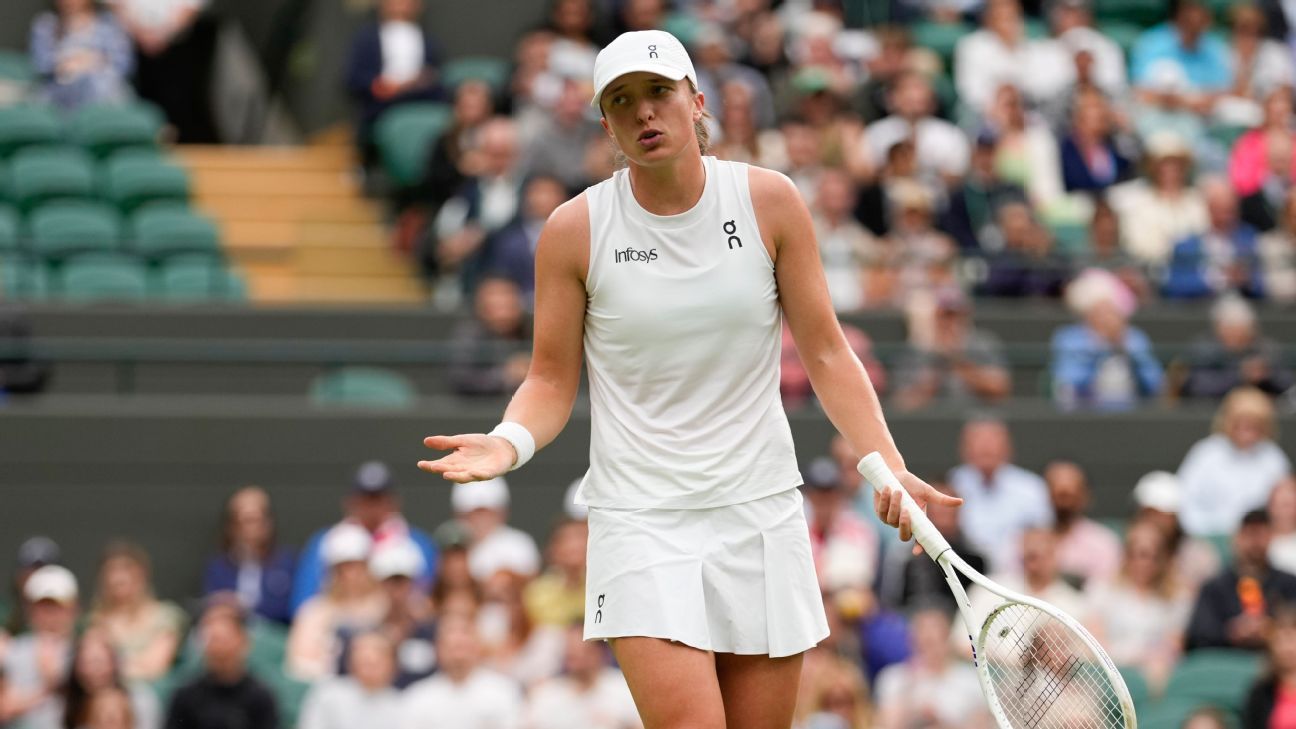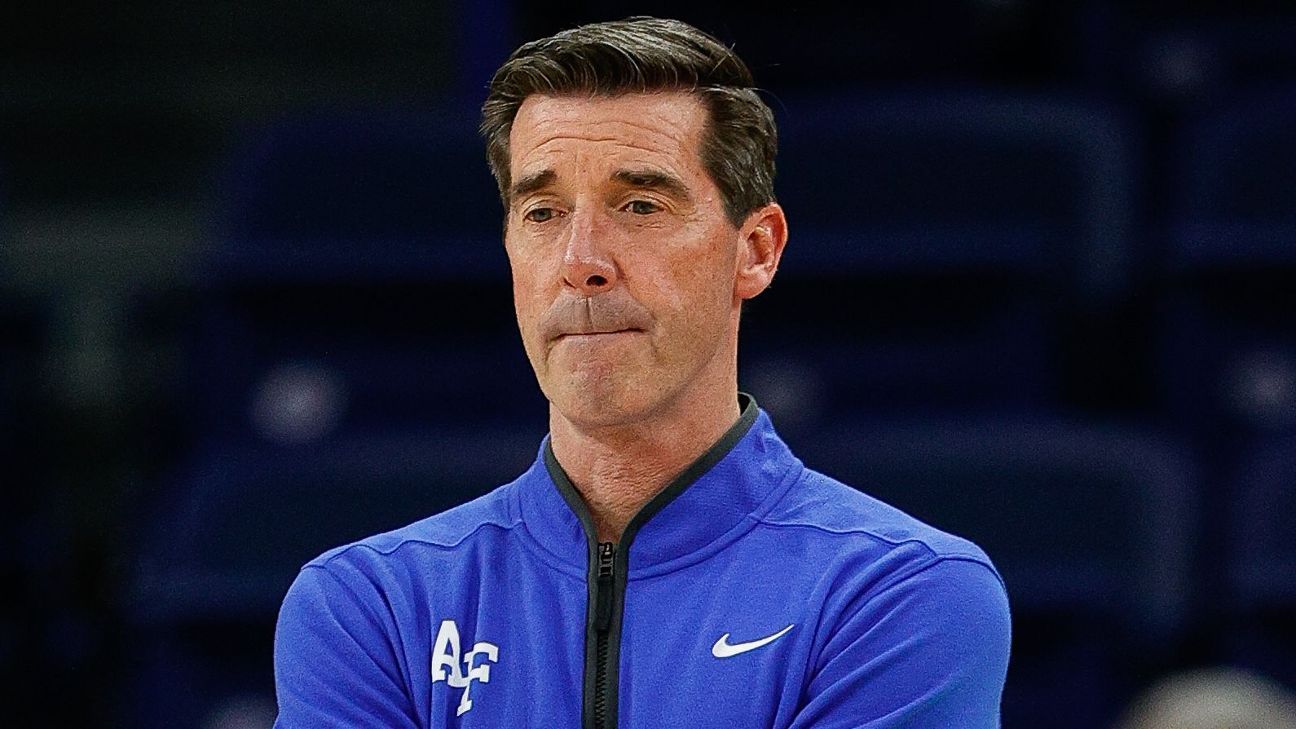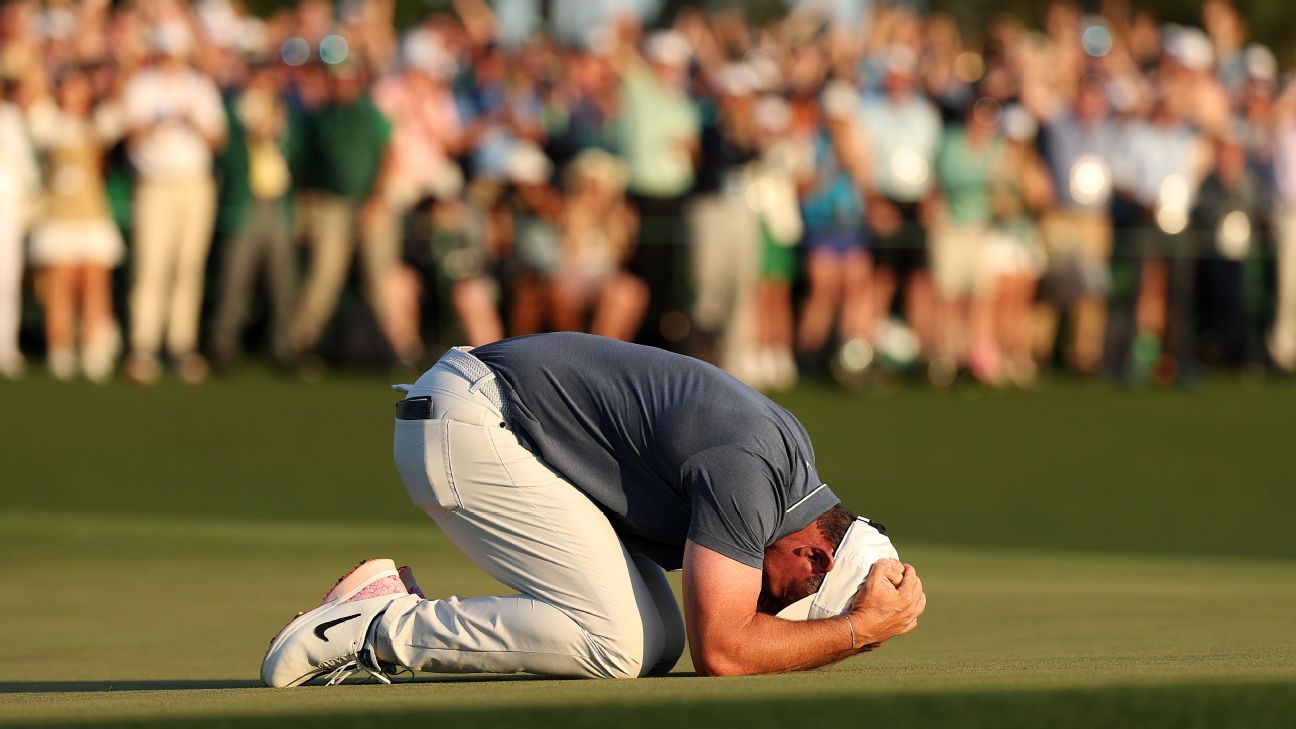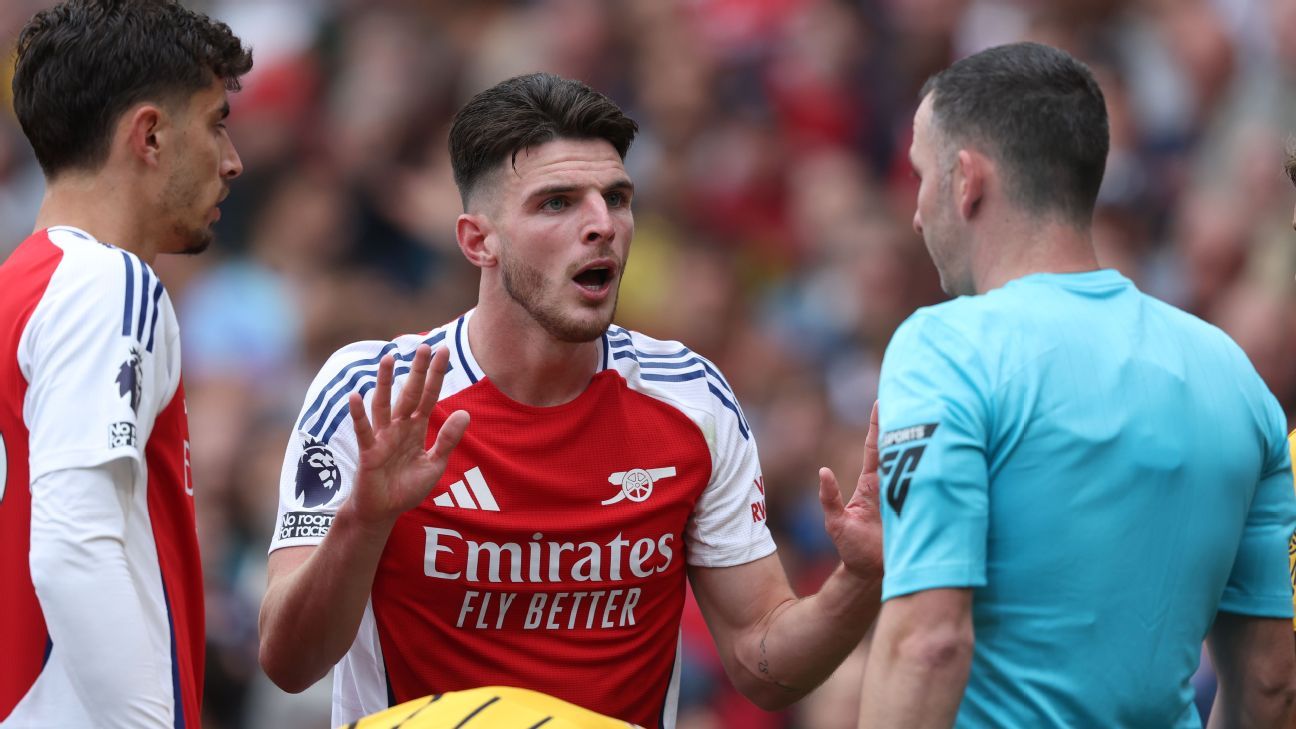Iga Swiatek's attempt to conquer the grass will have to wait another year.
On Saturday, the five-time major champion and world No. 1 fell in the third round of Wimbledon to Yulia Putinseva 3-6, 6-1, 6-2. Swiatek appeared headed for the round of 16 during the first set, but then had few answers for Putinseva, who changed her game plan and took control of the pace in the final two sets.
Swiatek, 23, is only the second woman in the Open Era to lose multiple matches as the top seed at Wimbledon before the round of 16, joining Martina Hingis.
After clinching victory on her third match point, an elated Putinseva received a standing ovation as the crowd on Court 1 roared, clearly in awe of what she had just done. The fans continued to applaud during her post-match interview, so much so that she had to ask for her first question to be repeated because she couldn't hear it.
“I have no words, I'm so happy right now,” Putinseva told the crowd. “I played so well… This is crazy, guys.”
So what does the loss mean for Swiatek and the rest of the Wimbledon field? Here's what to take away from Saturday's surprise upset:
The mental cost of being the favorite is hard
Entering Saturday's tournament, Swiatek was riding a 21-match winning streak and hadn't lost since the semifinals in Stuttgart in April. In that span, she had won her fifth major title at Roland Garros, as well as titles in Madrid and Rome. She holds a staggering 3,642-point lead over No. 2 Coco Gauff in the most recent rankings.
All this to say that Swiatek is at least a favourite, if not… he favorite in all the tournaments she plays, regardless of the surface.
But that is not easy. And even less so on grass, a surface on which she remains relatively inexperienced and untested. She saw a 37-match winning streak come to an end in the same round at Wimbledon two years ago, and her then-opponent Alize Cornet said she knew grass was where she could potentially beat her.
Swiatek has spoken of the pressure of such expectations in the past. When Aryna Sabalenka began to threaten Swiatek's No. 1 ranking last summer, the player fought hard to keep it, but eventually lost it after the US Open. She said she was “sad” to give it up, but that the months she had spent trying to keep it had been “exhausting.”
During Saturday’s loss, Swiatek looked confused and unable to make adjustments, especially when Putinseva stepped up her game. She had 38 unforced errors, compared to Putinseva’s 15, and simply didn’t display the mental toughness she has shown on other occasions, such as during her near-loss to Naomi Osaka at the French Open in May. There were several times during the match when the normally unflappable Swiatek was seen muttering to herself in disgust and looking frustrated by her play.
“I let her get the match back in the second set,” Swiatek said. “I shouldn't have. I made some mistakes as well, but she definitely took advantage of her opportunity.”
Swiatek's lack of grass preparation was evident
Swiatek's best Wimbledon result in five appearances was last year, when she reached the quarterfinals. She has won 22 titles in her short career, but has never won a tournament on grass. And she hasn't even played many.
This year, Swiatek opted not to play any of the warm-up tournaments on that surface after her Roland Garros win, instead choosing to rest and recover. At Roland Garros, she told reporters that she simply didn't have the proper time to prepare for the surface after the long clay season.
“It's a big challenge,” Swiatek said. “If I were to lose… [at Roland Garros] Before, maybe I could play two more weeks on grass and then be a better grass player, but if [had to] “I choose, I love playing on clay, so I'm never going to give that up.”
Her inexperience was on display Saturday, especially against a player who has had success on the surface. Putinseva, who had never won a set against Swiatek in their four previous meetings, won the title in Birmingham last month and looked much more comfortable moving around the court.
Swiatek simply couldn’t adapt to Putinseva’s tactical changes, speed and variety of shots. Tied at 1 in the second set, Putinseva won the next nine games and Swiatek could do nothing to stop the loss. Not even a lengthy bathroom break before the deciding set could help her refocus, as Putinseva won 16 of the first 19 points in the final set for a 4-0 lead. If Swiatek had more recent experience playing on grass, would she have been able to respond more efficiently or successfully? Swiatek said she doesn’t think so.
“You never know. I could have gotten injured in the second match because I trained immediately after Roland Garros,” she said on Saturday. “I think my coaches are pretty good at planning. They chose the right option for this year. But we'll see what happens next year.”
Putinseva thrives as a saboteur
Three-time Grand Slam champion and former world number one Ashleigh Barty called it “one of the best days of my career.” [Putinseva’s] The Russian commentator on the match for the BBC on her Twitter account, and it is her best result at Wimbledon. However, it is not the first time she has beaten the world number one on grass.
In 2019, Putinseva defeated then-No. 1 Osaka in the first round of Birmingham 6-2, 6-3, then defeated her again just weeks later in the first round of Wimbledon. Putinseva said knowing she had done it before helped her believe she could do it again.
“During the match I thought I had already beaten the world number one on grass,” Putinseva said. “That's why I think it's a fact that it's meant to be on grass.”
The phenomenal Putintseva 😲@PutintsevaYulia Beats world number one Iga Swiatek 3-6, 6-1, 6-2 in a stunning performance to advance to the fourth round! 👏#Wimbledon image.twitter.com/lUquT4mBDH
— Wimbledon (@Wimbledon) July 6, 2024
Putinseva, 29, clearly relishes her role as a giant-slayer and doesn't flinch on the biggest stages, and also has the drive and confidence of winning her first career title on grass just weeks ago. Putinseva, 29, said she focused on her strategy, and not her opponent, to pull off the win. She said she knew she needed to “keep the intensity up every point” and never give up.
“I was very focused on playing fast and not giving her time, and that worked,” Putinseva told the crowd. “So that was it.”
Putinseva has reached the quarter-finals at three major tournaments and next faces 2017 French Open champion Jelena Ostapenko on Monday for a place in the last eight.
The title is now within anyone's reach.
With grass already considered the most open surface, especially for women, and with several other contenders already eliminated from the competition, Swiatek's shock loss makes an already unpredictable field even more so.
Defending champion Marketa Vondrousova was beaten in the first round. World number three Sabalenka, a two-time Australian Open champion, retired before the match began because of a shoulder injury. Ons Jabeur, who has reached the last two Wimbledon finals, fell to Elina Svitolina on Saturday.
So this could be a very interesting final week at the All England Club. Of course, in Swiatek's half of the draw, the winner of the Putinseva-Ostapenko match could surely go even further. And 2022 champion Elena Rybakina scored a convincing win over Caroline Wozniacki on Saturday, and is now likely to be the favourite to advance to the final. But Svitolina, who reached the semi-finals last year, and 2021 French Open champion Barbora Krejcikova could be obstacles.
On the other side of the draw, Gauff, the No. 2 seed and reigning US Open champion, has dominated her way into the round of 16 and is yet to drop a set. Emma Raducanu, the British favorite and 2021 US Open champion, has resurged and could certainly continue to find magic in front of the home crowd.












